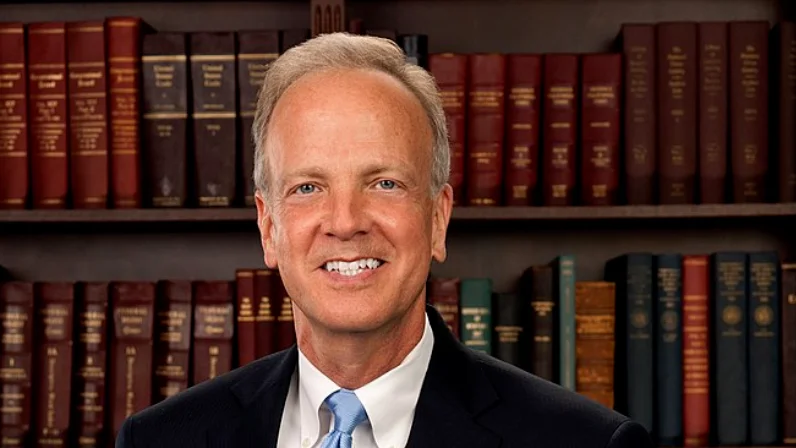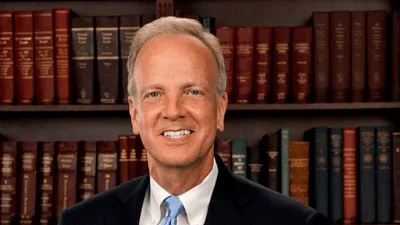Sen. Jerry Moran, US Senator for Kansas | Official U.S. Senate headshot
Sen. Jerry Moran, US Senator for Kansas | Official U.S. Senate headshot
U.S. Senator Jerry Moran (R-Kan.) has joined several Senate colleagues in introducing the Fight Illicit Pill Presses Act, a bill aimed at curbing the production of counterfeit and fentanyl-laced pills. The legislation is designed to strengthen federal law enforcement's ability to act against drug cartels by requiring pill presses, punches, and dyes used in pill manufacturing to have engraved serial numbers.
In 2024, the U.S. Drug Enforcement Administration (DEA) seized more than 61.1 million fentanyl-laced pills. Cartels have increasingly obtained pill presses similar to those used by pharmaceutical companies, allowing them to produce counterfeit pills that are hard to distinguish from legitimate medication. Current regulations under the Controlled Substances Act require recordkeeping for pill press equipment distribution, which aids the DEA in tracking and seizing machines involved in illicit drug production. However, despite seizures of illegal pill presses in 43 states, reports indicate these actions only address a small fraction of devices used by criminal organizations.
Senator Moran stated: “Fentanyl has taken the lives of thousands of Americans and continues to be a leading cause of death in the United States,” adding, “By imposing penalties for removing or altering serial numbers on pill presses, law enforcement will be able to more effectively target those responsible for the production of counterfeit fentanyl-laced pills and help prevent drug traffickers from flooding our country with these deadly substances.”
Senator John Cornyn (R-Texas) emphasized the impact on young adults: “Fentanyl is the leading cause of death for Americans age 18 to 45, which underscores just how prevalent this silent killer is in our communities,” he said. “Our bill would require the serialization of pill presses, punches, and dies to help law enforcement better detect, trace, and prosecute the cartels who produce these deadly pills and perpetuate the fentanyl crisis across our country.”
Senator John Fetterman (D-Pa.) noted: “Fentanyl is killing more young Americans than anything else right now, and fake pills are one of the most dangerous ways these synthetic opioids are getting into our communities,” adding that requiring serial numbers gives law enforcement another tool "to track the chain of custody and hold people who are profiting off of addiction accountable.”
Senator Thom Tillis (R-N.C.) commented on local impacts: “Communities across North Carolina and the country continue to suffer from the devastating impact of fentanyl, and we must do everything we can to disrupt the cartels and traffickers flooding our streets with these deadly drugs,” he said. “The Fight Illicit Pill Presses Act will give law enforcement an important tool to track down and hold criminals accountable, and I am proud to support this effort to help save lives.”
Senator Amy Klobuchar (D-Minn.) addressed effects in her state: “Fentanyl has devastated families across Minnesota and this crisis is being fueled by those who use pill presses to make counterfeit drugs. We need to do more to fight traffickers and protect communities,” she said. “This bipartisan legislation will require pill presses and their critical parts to have a serial number, which will help law enforcement fight counterfeit pill production, reduce overdoses, and ultimately save lives.”
If enacted, the bill would amend existing federal law so that all encapsulating machines, tableting machines, punches, and dies must be engraved with a serial number. It would also mandate that all serial numbers be filed with the DEA as part of required documentation for such equipment. Additionally, criminal penalties would be imposed for anyone found removing or altering a machine’s serial number or possessing or transporting equipment without proper identification.
The legislation has received endorsements from several national law enforcement groups including National Narcotic Officers’ Associations’ Coalition (NNOAC), National HIDTA Directors Association, CADCA, National Association of Police Organizations (NAPO), Major County Sheriffs of America (MCSA), Federal Law Enforcement Officers Association (FLEOA), and Sergeants Benevolent Association NYPD.



 Alerts Sign-up
Alerts Sign-up